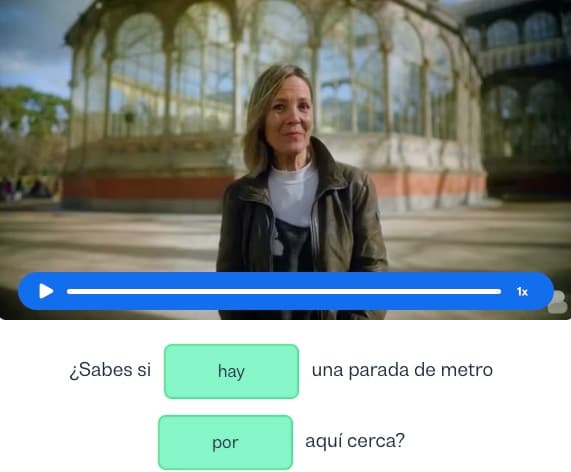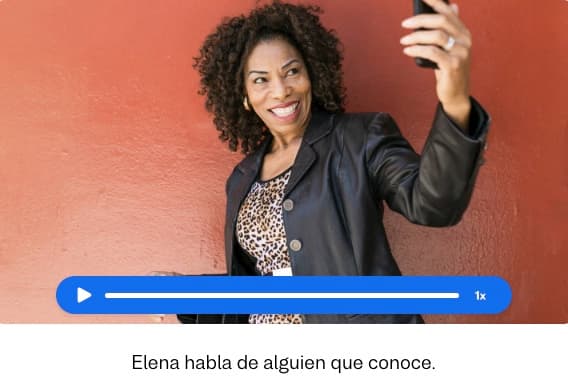I want to learn...
Learning Spanish can be an exciting journey, and one of the fundamental aspects of the language is understanding the correct usage of verbs. Understanding the difference between the Spanish verbssaberandconoceris vital for English speakers learning the language. Although both verbs translate into English as 'to know', they have different meanings and uses.
In this article, we will explore the differences between these verbs and provide a comprehensive guide for Spanish learners.
Understanding the differences between saber and conocer
When learning Spanish, it is crucial to distinguish between saber and conocer as they both translate to “to know” in English but they have different meanings and uses.
A simple way to differentiate between them is by keeping the following in mind:
Use "saber" to express knowledge of facts, information, or how to do something.
Facts: "Sé que el sol es una estrella." (I know that the sun is a star.)
Skills or abilities: "Sabes tocar la guitarra." (You can play the guitar.)
How to do something: "Sabemos cocinar paella." (We can cook paella.)
!start2!Use "conocer" when expressing familiarity or personal acquaintance.
People: "Conoce a María." (He has met María before.)
Places: "¿Conocéis Barcelona?" (Have you all been to Barcelona?)
Things: "Conozco este libro." (I am familiar with this book.)
How to use these verbs effectively
To use the verbs saber and conocer effectively, it’s essential to understand their conjugation in the three basic tenses: presente (present simple), pretérito perfecto simple (past perfect simple) and futuro (future.)
Presente
| Subject | Saber | Conocer |
|---|---|---|
| Yo | Sé | Conozco |
| Tú | Sabes | Conoces |
| Él / Ella / Usted | Sabe | Conoce |
| Nosotros / Nosotras | Sabemos | Conocemos |
| Vosotros / Vosotras | Sabéis | Conocéis |
| Ellos / Ellas / Ustedes | Saben | Conocen |
Be an expert in using the Spanish verb “conocer”!
Now you know that "conoce" (a form of the verb “conocer”) implies a personal acquaintance or familiarity with the person being discussed, put everything into practice with support from Busuu’s online courses and a worldwide network of Spanish speakers.
Pretérito perfecto simple
| Person | Saber | Conocer |
|---|---|---|
| Yo | Supe | Conocí |
| Tú | Supiste | Conociste |
| Él / Ella / Usted | Supo | Conoció |
| Nosotros / Nosotras | Supimo | Conocimos |
| Vosotros / Vosotras | Supisteis | Conocisteis |
| Ellos / Ellas / Ustedes | Supieron | Conocieron |
Futuro
| Person | Saber | Conocer |
|---|---|---|
| Yo | Sabré | Conoceré |
| Tú | Sabrás | Conocerás |
| Él / Ella / Usted | Sabrá | Conocerá |
| Nosotros / Nosotras | Sabremos | Conoceremos |
| Vosotros / Vosotras | Sabréis | Conoceréis |
| Ellos / Ellas / Ustedes | Sabrán | Conocerán |
Understanding the differences between the Spanish verbs saber and conoceris vital for basic-level Spanish learners. Knowing when to use each verb can enhance your communication skills and prevent confusion.
By mastering their meanings, usage, and conjugation in the present simple, past, and future tenses, you will be better equipped to express yourself accurately in Spanish.
Keep practicing and exploring additional resources to strengthen your understanding and fluency in this beautiful language.
Newlanguages


